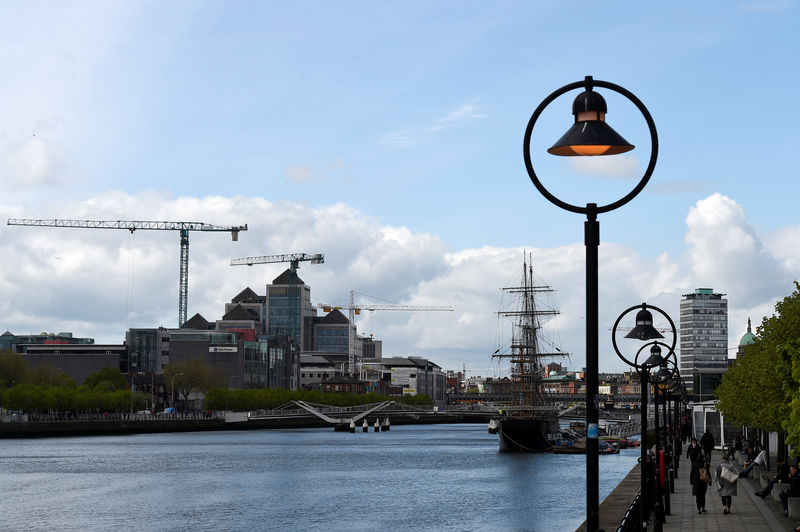By Padraic Halpin
DUBLIN (Reuters) - Ireland may be able to eliminate its budget deficit this year, 12 months ahead of schedule, following another bumper month for corporate tax receipts in November, Finance Minister Paschal Donohoe said on Tuesday.
Donohoe said in October that quirks associated with the country's large cluster of multinational firms would inflate corporate tax receipts by as much as 1 billion euros (889.68 million pounds) for 2018, strengthening the exchequer and allowing him to fund spending overruns elsewhere.
However, data from his department showed on Tuesday that corporate tax receipts were running 1.5 billion euros, or almost 20 percent, above plan at the end of November, the largest corporation tax collection month of the year.
"These additional receipts are not being used to finance additional expenditure. Instead, all of the excess will be set aside to reduce – and possibly eliminate – the headline deficit, putting Ireland in a stronger position and better able to meet the challenges that may lie ahead," Donohoe said in a statement.
Donohoe pledged in October to deliver Ireland's first fully balanced budget in over a decade next year, improving on the deficit of 0.1 percent of gross domestic product (GDP) forecast for this year.
The sharp rise in corporate tax receipts pushed the state's tax take 2.4 percent, or 1.2 billion euros, ahead of target for 2018 as VAT and income tax - the two largest categories - remained broadly in line with expectations
If another 600 million euros is collected as forecast from firms in December, Ireland's annual corporate tax take will top 10 billion euros for the first time, having stood at just under 4 billion euros in 2012.
The finance ministry said in October that technical changes in global accounting rules regarding the allocation and timing of corporate tax receipts would mainly be responsible for the one-off increase, although it added on Tuesday that the increase partly reflected higher levels of profitability in the economy.

With corporation tax now accounting for 18 percent of the overall tax take, Donohoe said he would bring a set of proposals to government in the new year on how to address the increasing concentration.